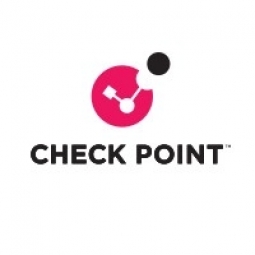Technology Category
- Cybersecurity & Privacy - Network Security
- Networks & Connectivity - NFC
Applicable Industries
- Electronics
- Retail
Applicable Functions
- Quality Assurance
- Sales & Marketing
Use Cases
- Inventory Management
- Tamper Detection
Services
- Cloud Planning, Design & Implementation Services
- System Integration
About The Customer
Optix is a leading provider of practice management software for optical professionals in the U.K. The company's solutions are designed for cloud delivery, enabling opticians to securely access and use management, clinical, and administrative capabilities online. More than 800 independent opticians rely on Optix for seamless, leading-edge capabilities to take their practices to the next level of efficiency. Optix's clients range from single-doctor practices to global retail organizations with optical services departments, all of whom need secure management, clinical, and administrative capabilities.
The Challenge
Optix, a leading provider of practice management software for optical professionals in the U.K., faced the challenge of ensuring stronger protection for client business data and secure VPN connections for each client. The company needed to simplify the management of hundreds of connected appliances. As healthcare providers, opticians treat patients and have the same requirements for managing patient, scheduling, and clinical data as other healthcare providers. Ensuring patient privacy and meeting other compliance regulations are critical. More than 800 opticians in the U.K. turn to Optix solutions to gain high-quality practice management tools without the worries of having to deploy, manage, upgrade, or support IT equipment and applications themselves. However, the Secure Socket Layer (SSL) protocol that Optix used to protect connections was no longer sufficient to secure patient, clinical, confidential business, and payment information.
The Solution
Optix evaluated several security solutions for small and medium-sized businesses, but they were either not robust enough or lacked features that allowed Optix to easily manage hundreds of connections. The company chose the Check Point 700 Appliance, designed specifically to protect small business employees, networks, and data from cyber threats through integrated, multi-layered security. Optix uses the firewall, Virtual Private Network (VPN), Intrusion Prevention System (IPS), and URL filtering capabilities to secure connections with its clients. When an optician subscribes to the Optix service, Optix pre-configures the appliance using the Check Point Zero-Touch Configuration feature before sending it to the optician’s practice. Optix also uses the Check Point Security Management Portal to manage all of the appliances. The Security Management Portal provides a central management and service-provisioning platform for zero-touch operations.
Operational Impact
Quantitative Benefit

Case Study missing?
Start adding your own!
Register with your work email and create a new case study profile for your business.
Related Case Studies.

Case Study
Remote Temperature Monitoring of Perishable Goods Saves Money
RMONI was facing temperature monitoring challenges in a cold chain business. A cold chain must be established and maintained to ensure goods have been properly refrigerated during every step of the process, making temperature monitoring a critical business function. Manual registration practice can be very costly, labor intensive and prone to mistakes.

Case Study
Improving Production Line Efficiency with Ethernet Micro RTU Controller
Moxa was asked to provide a connectivity solution for one of the world's leading cosmetics companies. This multinational corporation, with retail presence in 130 countries, 23 global braches, and over 66,000 employees, sought to improve the efficiency of their production process by migrating from manual monitoring to an automatic productivity monitoring system. The production line was being monitored by ABB Real-TPI, a factory information system that offers data collection and analysis to improve plant efficiency. Due to software limitations, the customer needed an OPC server and a corresponding I/O solution to collect data from additional sensor devices for the Real-TPI system. The goal is to enable the factory information system to more thoroughly collect data from every corner of the production line. This will improve its ability to measure Overall Equipment Effectiveness (OEE) and translate into increased production efficiencies. System Requirements • Instant status updates while still consuming minimal bandwidth to relieve strain on limited factory networks • Interoperable with ABB Real-TPI • Small form factor appropriate for deployment where space is scarce • Remote software management and configuration to simplify operations

Case Study
Digital Retail Security Solutions
Sennco wanted to help its retail customers increase sales and profits by developing an innovative alarm system as opposed to conventional connected alarms that are permanently tethered to display products. These traditional security systems were cumbersome and intrusive to the customer shopping experience. Additionally, they provided no useful data or analytics.

Case Study
How Sirqul’s IoT Platform is Crafting Carrefour’s New In-Store Experiences
Carrefour Taiwan’s goal is to be completely digital by end of 2018. Out-dated manual methods for analysis and assumptions limited Carrefour’s ability to change the customer experience and were void of real-time decision-making capabilities. Rather than relying solely on sales data, assumptions, and disparate systems, Carrefour Taiwan’s CEO led an initiative to find a connected IoT solution that could give the team the ability to make real-time changes and more informed decisions. Prior to implementing, Carrefour struggled to address their conversion rates and did not have the proper insights into the customer decision-making process nor how to make an immediate impact without losing customer confidence.









